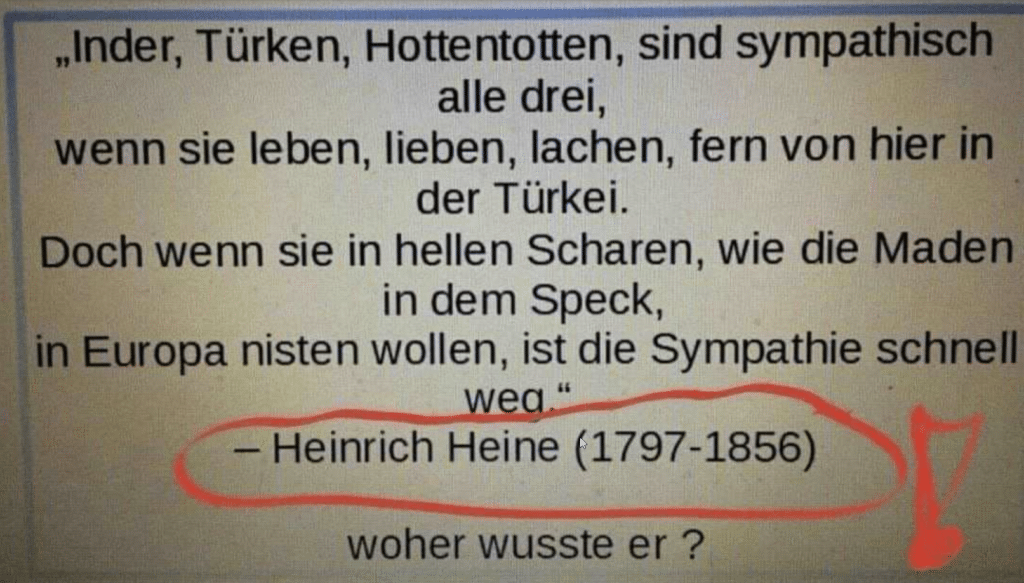The claim
A poem about “Indians, Turks, Hottentots” that is circulating on the Internet is said to be by Heinrich Heine.
Our conclusion
The claim is false. Heinrich Heine did not write the poem. The origin of the poem is obscure and is not documented in his entire work.
Information, whether true or false, spreads at breathtaking speed on the Internet. A particularly interesting case is Heinrich Heine's alleged poem about “Indians, Turks, Hottentots.” At a time when the debate about migration and cultural exchange is highly topical, it may seem tempting to include historical figures in these discourses. However, caution is advised when it comes to the authenticity of such quotes.
Rumors/claims about alleged poems by Heinrich Heine
It is claimed on social networks that Heinrich Heine addressed migration poem about “Indians, Turks, Hottentots” This claim suggests that Heine, one of the most important German poets, had already dealt with such topics in the 19th century.

Evaluation
The claim is false. Thorough research into Heine's complete works shows that the lines in question do not appear there. The attribution of the poem to Heine is therefore misleading and unfounded.
The facts
A detailed search of the entire online work of Heinrich Heine (1797-1856) has revealed no reference to the poem in question. In particular, the terms “Indians”, “Turks” and “Hottentots” do not lead to the alleged poem.
The Heinrich Heine Society confirmed in 2019 that the poem was not by Heine. Nevertheless, the false attribution persists on social networks.
Conclusion
The origin of the poem and the reasons for its incorrect attribution to Heine remain unclear. According to the Heine Yearbook, the poem was already distributed in the early 1990s .
This shows how long-lasting and persistent misinformation can be, especially when it affects people of historical importance.
Source: DPA
In order to protect yourself from the spread of false attributions, it is important to examine sources critically. Stay informed and subscribe to the Mimikama newsletter . Also visit our monthly online lectures and workshops . Inform yourself, remain critical and help debunk misinformation.
You might also be interested in:
Notes:
1) This content reflects the current state of affairs at the time of publication. The reproduction of individual images, screenshots, embeds or video sequences serves to discuss the topic. 2) Individual contributions were created through the use of machine assistance and were carefully checked by the Mimikama editorial team before publication. ( Reason )

